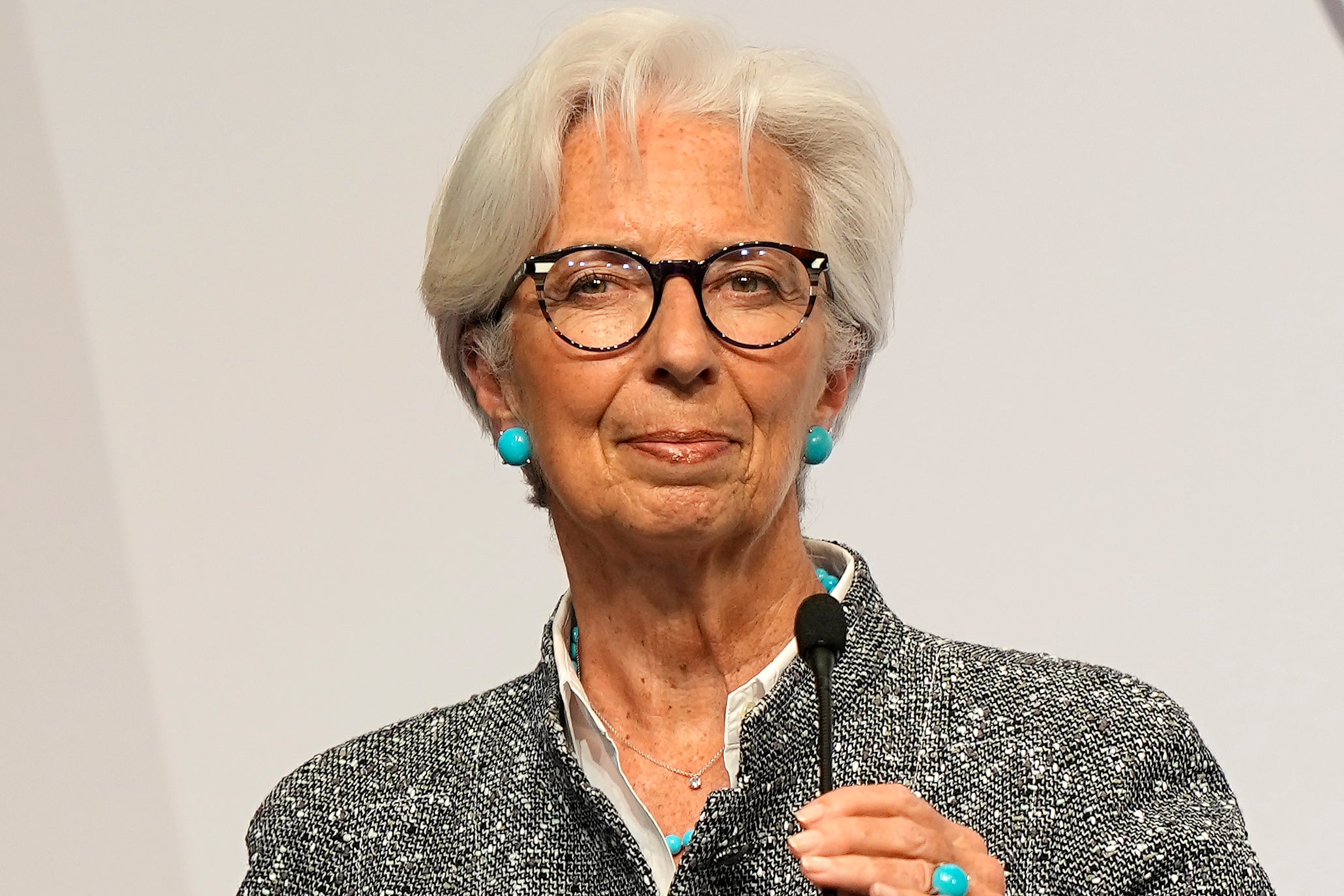European Central Bank chief signals more rate hikes ahead with inflation still 'strong'
European Central Bank head Christine Lagarde says inflation pressures are “strong."

Your support helps us to tell the story
From reproductive rights to climate change to Big Tech, The Independent is on the ground when the story is developing. Whether it's investigating the financials of Elon Musk's pro-Trump PAC or producing our latest documentary, 'The A Word', which shines a light on the American women fighting for reproductive rights, we know how important it is to parse out the facts from the messaging.
At such a critical moment in US history, we need reporters on the ground. Your donation allows us to keep sending journalists to speak to both sides of the story.
The Independent is trusted by Americans across the entire political spectrum. And unlike many other quality news outlets, we choose not to lock Americans out of our reporting and analysis with paywalls. We believe quality journalism should be available to everyone, paid for by those who can afford it.
Your support makes all the difference.European Central Bank head Christine Lagarde said Monday that price pressures are “strong” and made clear that the bank will raise interest rates high enough to bring down inflation and keep them there “for as long as necessary.”
Lagarde's remarks reinforced her earlier statements indicating the ECB was not done raising rates even after inflation fell by almost a full percentage point in May, to 6.1%. The ECB has been hiking rates at the fastest pace in its history, launching its drive in July 2022 as inflation headed for record highs.
While energy prices are falling and food prices have started to ease from high levels, "there is no clear evidence that underlying inflation has peaked,” Lagarde told the European Parliament's economic and monetary affairs committee in Brussels.
“Our future decisions will ensure that the policy rates will be brought to levels sufficiently restrictive to achieve a timely return of inflation to our 2% medium-term target and will be kept at those levels for as long as necessary,” she said.
High inflation, particularly for food and energy, has slowed the European economy as consumers are forced to set aside more money for necessities and are left with less to spend on other things. The European economy barely scraped out 0.1% growth in the first quarter. Lagarde acknowledged that higher rates were raising borrowing costs and reducing bank lending.
She stressed the burden that inflation puts on ordinary people, particularly those who are low income and spend a larger share of their income on food and energy.
“High inflation is putting a strain on people living in the euro area,” she said of the 20 countries using the euro currency. “We are fully committed to fighting inflation and we are determined to achieve its timely return to our 2% medium-term target.”
Inflation spiked as the global economy's rebound from the COVID-19 pandemic snarled supply chains and Russia’s invasion of Ukraine drove energy prices to record highs. Some of those strains have eased as supply chains recovered and Europe managed to replace most of its natural gas that was formerly supplied by Russia.
As a result, inflation has been coming down from its peak of over 10% in October.
The ECB slowed the pace of its rate hikes from big moves of half- or three-quarters of a percentage point to a quarter-point at its May 4 meeting. It is expected to raise benchmarks again at meetings on June 15 and July 27.
The benchmark deposit rate now stands at 3.25%, up from minus 0.5% in July 2022.